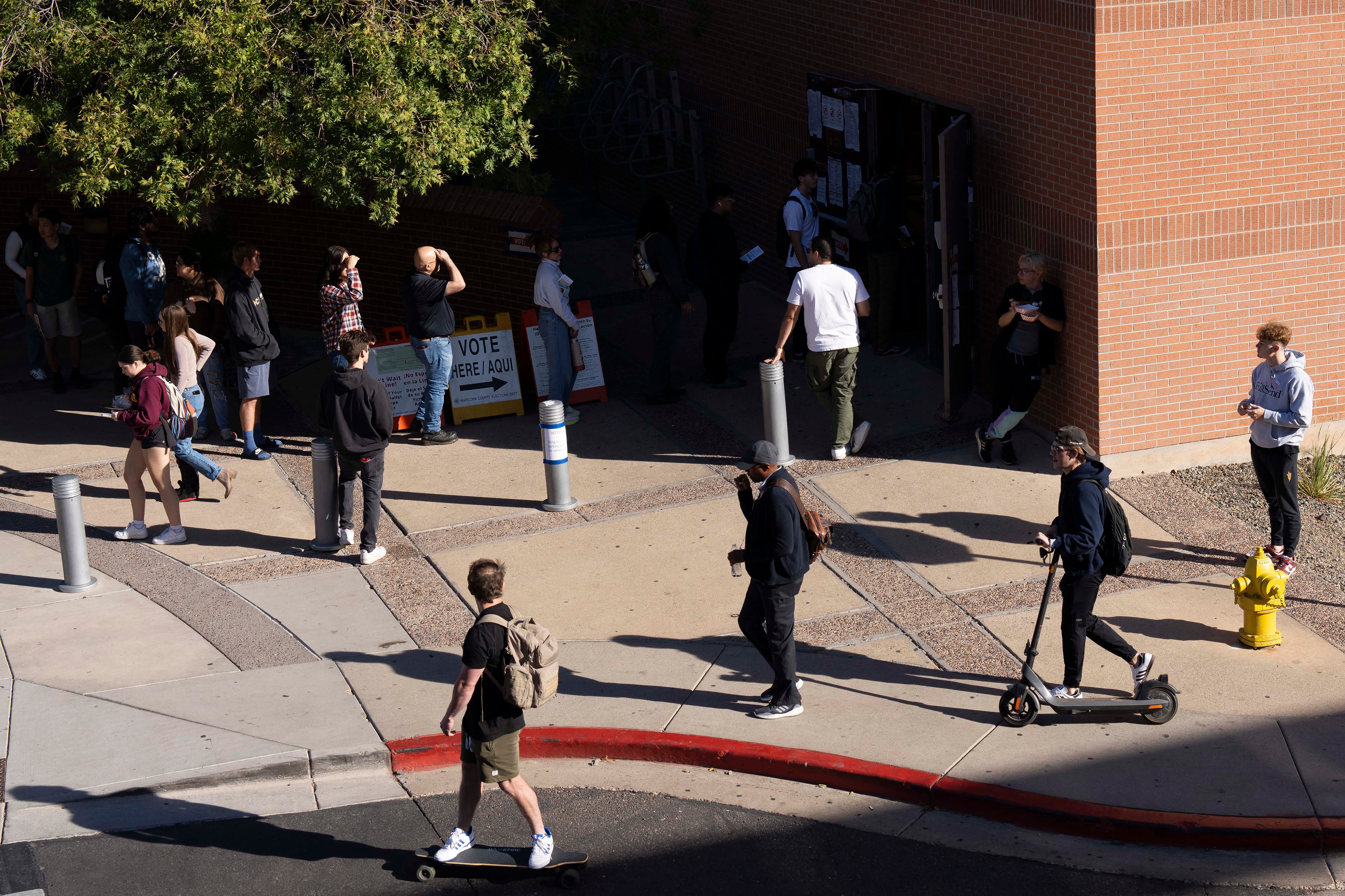Votebeat is a nonprofit news organization reporting on voting access and election administration across the U.S.
This news analysis was originally distributed in Votebeat’s free weekly newsletter. Sign up to get future editions, including the latest reporting from Votebeat bureaus and curated news from other publications, delivered to your inbox every Saturday.
Expect hearings to begin soon on the lawsuits challenging President Donald Trump’s executive order attempting to overhaul elections.
The cases were filed by a long list of national groups commonly active in voting rights litigation, such as the NAACP and the League of Women Voters. Among them this time is a lesser-known local wildcard: the Arizona Students’ Association.
It might seem strange that a group of Arizona students have an immediate concern about a federal order dictating how elections must be run. But Kyle Nitschke, the organizing director of the Arizona Students’ Association, said in an interview this week that his organization felt it had a responsibility, on behalf of the students it represents, to intervene.
That’s because the Arizona Students’ Association tries to register college students across Arizona. Because of the state’s unique laws requiring proof of citizenship, they have had a front-row view of how the requirements may be leading to the disenfranchisement of eligible Americans.
The order tells the U.S. Election Assistance Commission to alter the federal voter registration form to require people who are registering to vote to provide documents proving their citizenship, such as a passport.
Arizona is one of the few states in the country already limiting voting for those who don’t prove citizenship by providing a qualifying document. Such voters receive a ballot with just presidential and congressional contests, and are marked as “federal-only” voters. This applied to less than 1% of the state’s voter roll, or 34,933 out of around 4.4 million active voters eligible for the November 2024 presidential election.
A close look at the state’s federal-only voter list provides clues as to which voters nationally might struggle to provide citizenship proof. And as Nitschke knows well, and as Votebeat confirmed in an analysis last year, that definitely includes college students.
Votebeat analyzed the list of federal-only voters eligible to vote in the November election, and found that at least 6% of them live in just three precincts at the center of each of the state’s three public universities’ main campuses. That percentage doubles if expanded to include nearby precincts that include student housing.
Federal-only voters make up 29% of the voters in those three precincts, compared with 0.8% of the overall voter roll.
Though Votebeat can’t be certain that the federal-only voters in these precincts were all enrolled in the nearby universities, the analysis also found that federal-only voters were significantly more likely to be younger than 25 compared to the Arizona voting-age population in general.
All of this points to potentially disproportionate consequences for college-age voters.
When conducting voter registration drives on college campuses, Nitschke has told Votebeat in the past, the students’ association often runs into students originally from out of state who can’t provide proof of citizenship on the spot. That’s because many don’t have Arizona IDs, and they didn’t bring their birth certificates or passports with them to school.
The vast majority of such students are able to write down the last four numbers of their social security number, he has explained, but that doesn’t count as proof of citizenship under Arizona’s law.
When students can’t provide an in-state ID at a registration drive, the association provides them with a federal registration form so they can become a federal-only voter.
In the few months leading up to the November 2024 presidential election, half of the 3,500 students the association registered to vote used the federal form, Nitschke wrote in a declaration filed in the case this week, and therefore probably landed on the federal-only list.
That provides a glimpse of how many college students — just in the few months leading up to a presidential election — would probably not be able to register on the spot at voter registration drives in Arizona if the executive order was in effect. Nitschke wrote in the declaration that the potential harm from the order is “immediate and irreparable.”
“The EO causes fear and confusion for ASA members who have read or heard about it and are worried that they may not be able to register to vote despite being eligible to do so,” he wrote.
It isn’t the first time the association has pushed back against voter citizenship requirements. It’s also a plaintiff in the Mi Familia Vota v. Fontes case challenging two 2022 Arizona laws attempting to further restrict voting for Arizona residents who don’t provide citizenship proof.
In trial testimony for that case, Nitschke told the judge that if the new laws were in place, the organization would change its practice. Instead of helping students get registered as federal-only voters, it would turn the students away instead.
“I think we would see less students getting registered to vote in the state and see more students registering out of state or staying [registered] at addresses where they are not currently living — at their parents’ address,” Nitschke testified.
If the executive order requiring documented proof nationwide goes into force, these students may not end up registering at all.
Jen Fifield is a reporter for Votebeat based in Arizona. Contact Jen at jfifield@votebeat.org.



